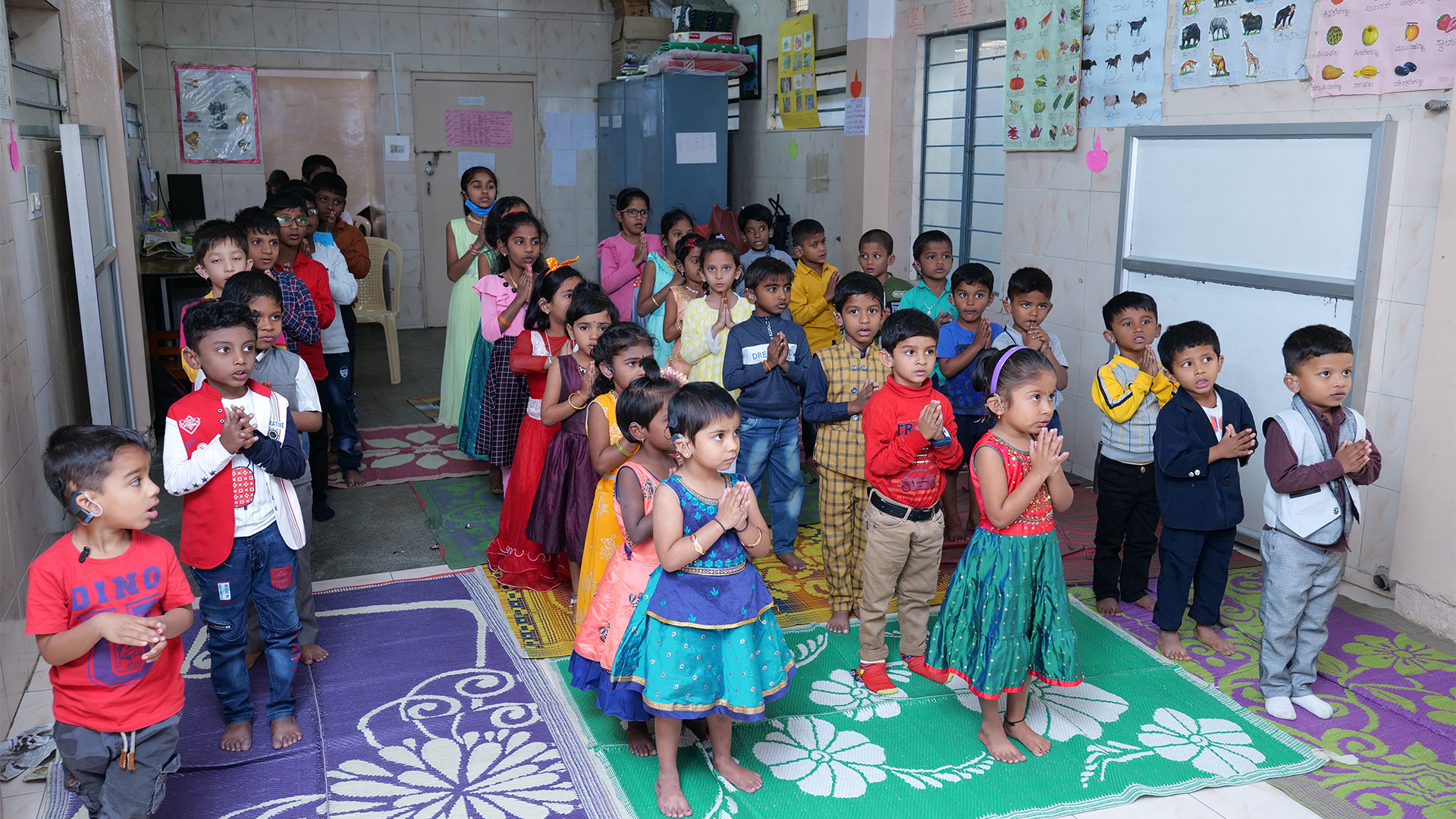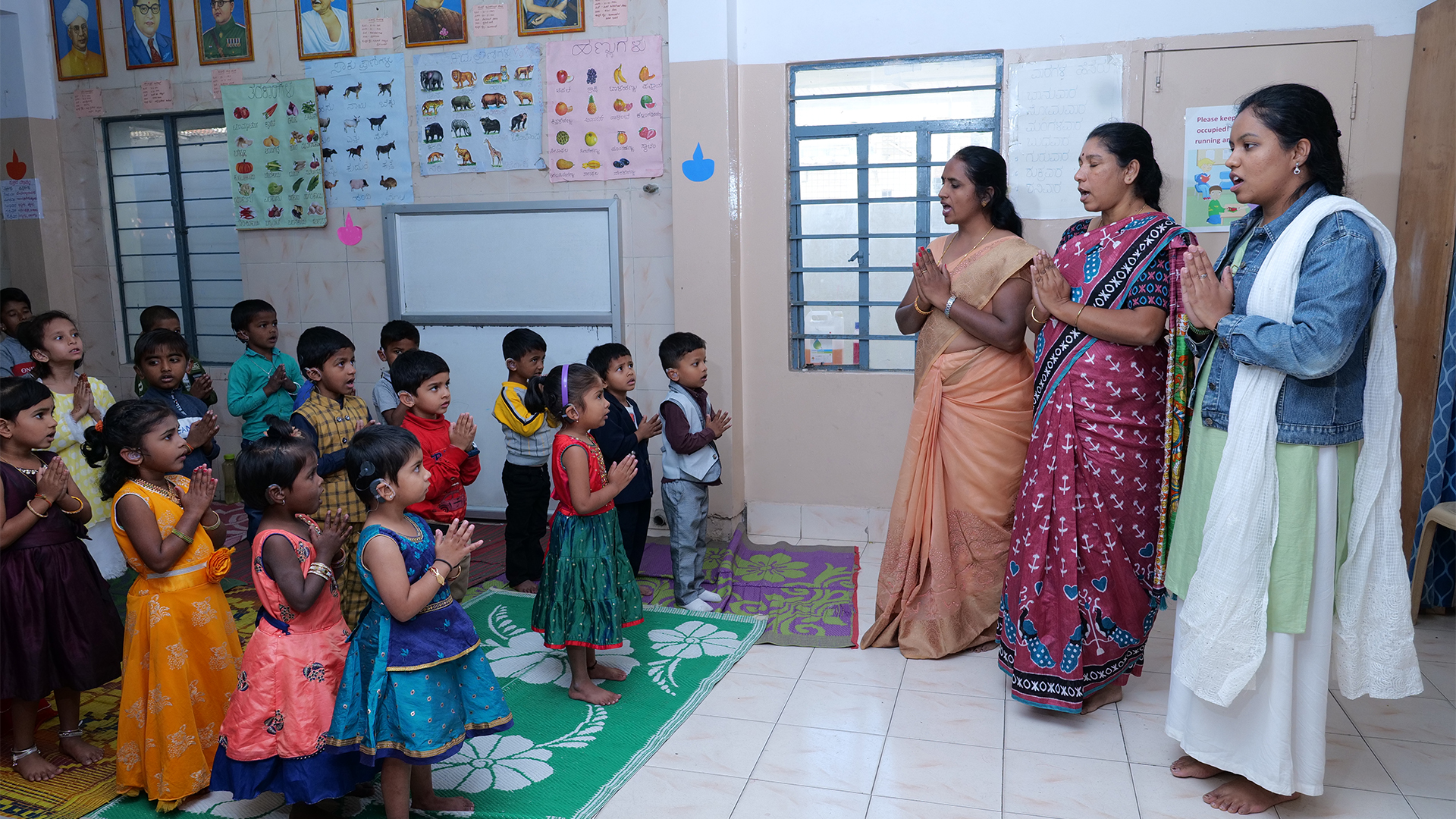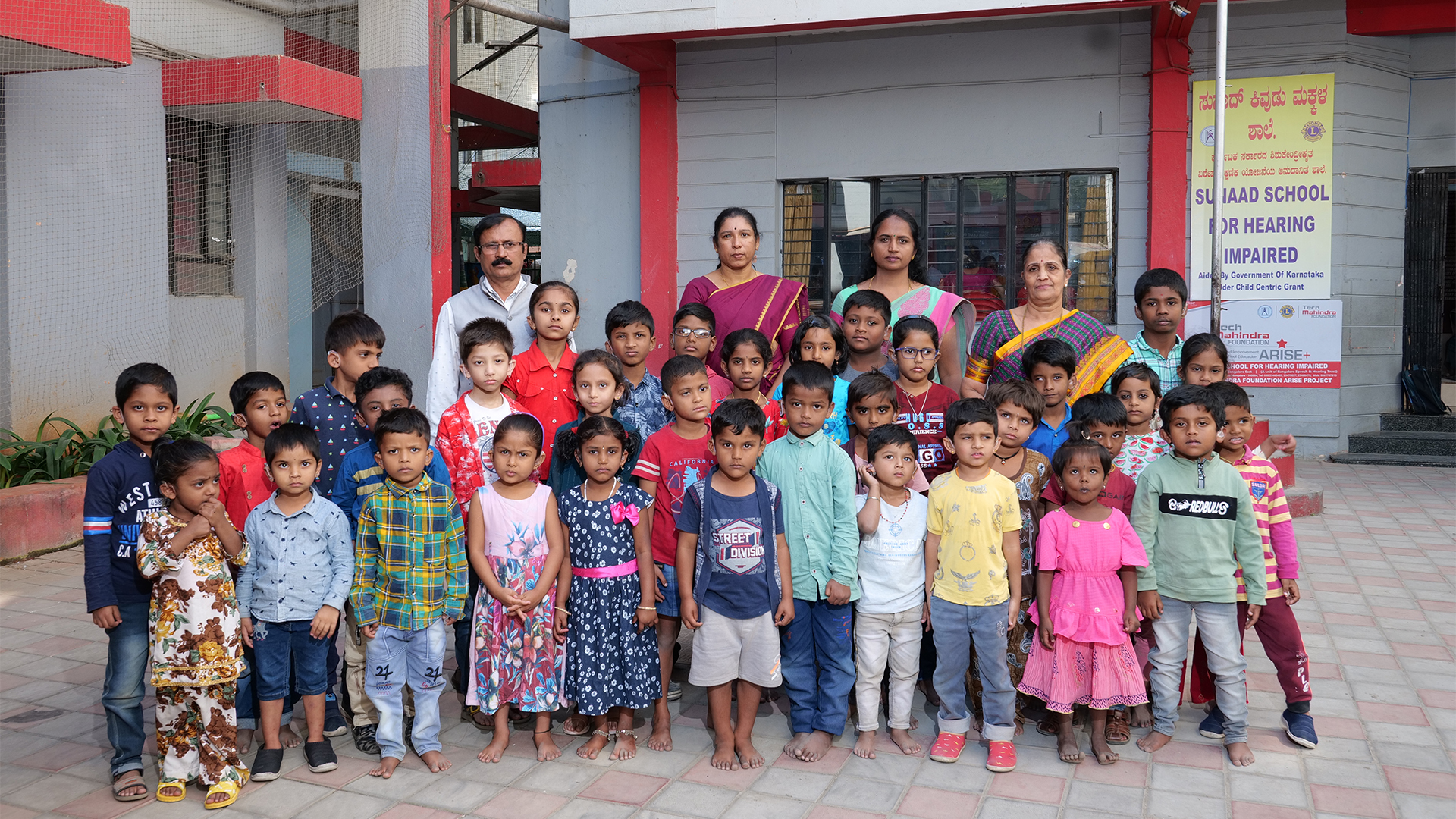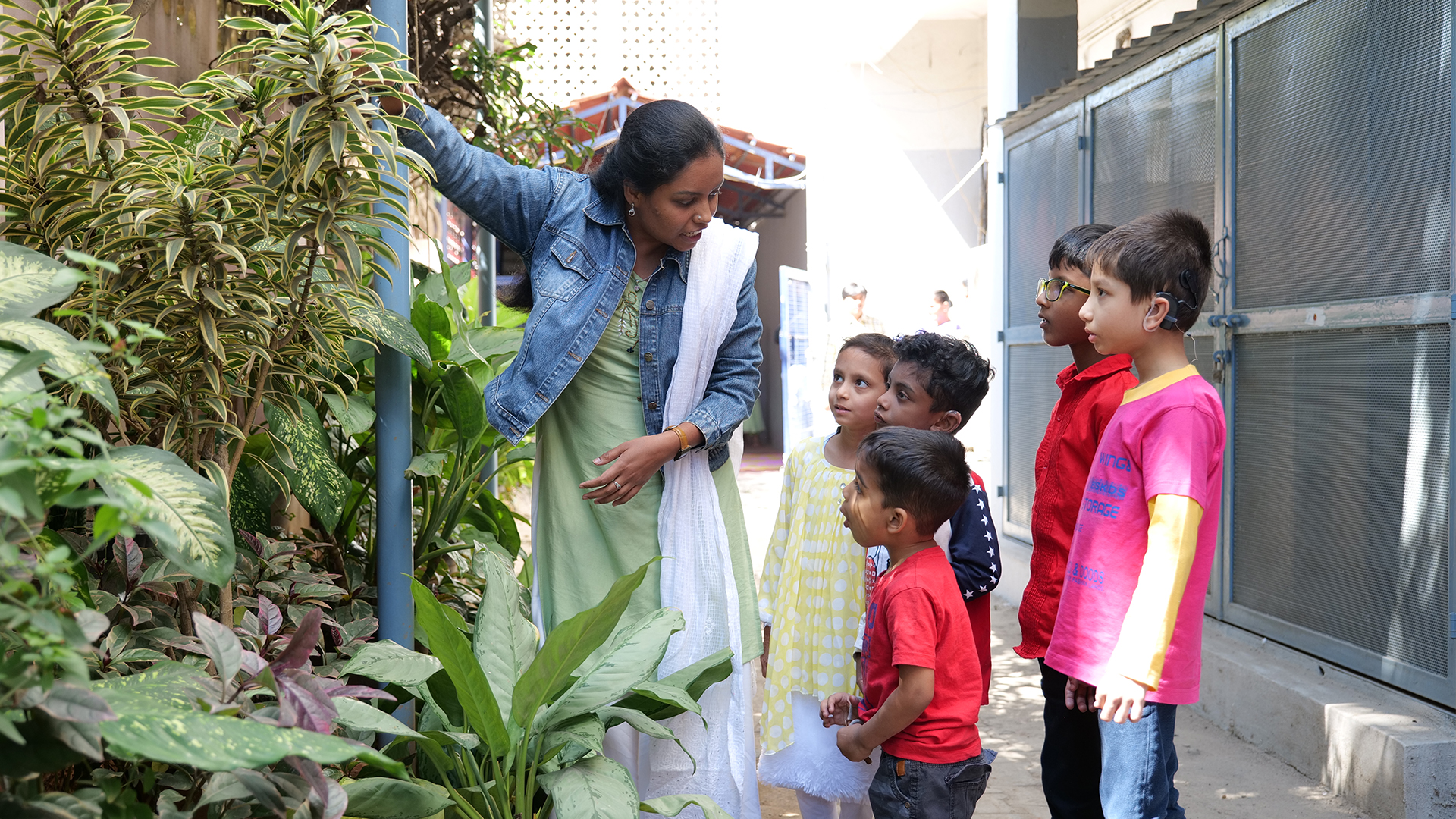- Five Stages in the training programme:
- Stage 1 to Stage 4: Duration of Six months for each stage.
- Stage 5: Duration One to two years.
First Stage
- Child is conditioned to wear and accept hearing devices throughout the waking hours.
- Conditioning the child to be away from his/her mother during the training hours (child is with another mother)
- Exposure to sounds to develop auditory skills.
- Introduction of common objects by speech reading and listening (show, give and tell)
- Recognizing objects from the object book specially prepared for each child. (individualised education program)
- Introduction of the relationship of each of the family members with the help of specially prepared photo album.
- Introduction of Calendar (day, date, month and year)
- Introduction of verbs- Giving commands to obey actions, such as run, crawl, jump etc.
a – Through speech reading
b – Later by listening.
c – Reading the commands in written form and performing the action.
Second Stage
In this stage child learns to participate in group activities as in a regular school
- Prayer and calling attendance to induce discipline while in a group.
- Identification of colours, numbers, body parts,and common objects etc. initially by speech reading later by listening.
- Familiarisation of sounds, starting with vowels followed by consonants.
- Practice in speech reading and listening of the above sounds.
- Talking to the child in simple sentences making use of pictures of animals, birds, fruits the vegetables and so on
- Introduction to writing like scribbling, pattern writing, colouring etc.
- Playing games to give stimulation to listening and improve concentration by using blocks, games beads toys etc.
- Introduction of reading beginning with matching identical words and Words to pictures.
- Developing cognitive skills through simple yes or no questions.
Third Stage
- Prayer and national song to develop sense of discipline and patriotism.
- Introduction of verbs with the help of incident-oriented lessons.
- Obeying more complicated commands in sentences introducing prepositions and adjectives.
- Making incident-oriented lessons with two to three sentences to prepare the child to answer WH question forms. Who, What, Where, When (time and situation), Why and How.
- Training the child on speech reading, listening, speech correction, comprehension and visual memory.
- Introduction of rhymes and action songs.
Fourth Stage
- Prayer and recitation of verses and National songs on their own.
- Making incident-oriented lessons in three pages.
Page 1: On the incident.
Page 2: Information directly connected to the incident.
Page 3: Abstract information or indirectly connected with the incident.
- The lessons are made more informative so that the deaf child acquires more academic knowledge than the normal child of that age. This helps the deaf child to be accepted by the teacher as well as peers in the normal school.
- Talking to the child in full sentences making use of pictures, thus preparing the child to hear stories.
- Training the child to answer the questions starting with filling up the blanks and choose and write.
- Playing games with normal children to develop alertness.
- Introduction to Basic Mathematics:
⇛ Counting coins.
⇛ Clock and time.
⇛ Scales.
⇛ Simple arithmetic.
- Simple exercises once a week.
- Pushing basic knowledge on the environment.
- Story telling with sequence pictures.
- Playing indoor and outdoor games to develop team spirit.
Fifth Stage
- Prayer and recitation of verses and national songs on their own
- More brain storming incident-oriented lessons:
⇛ More information and knowledge in Science, Social sciences and Mathematics.
- Preparing the child for general conversation including the group discussion.
- Story telling without using pictures including Mythology and History. Introduction to reading newspapers, comics, magazines.
- Reading of stories and checking of comprehension including the moral of the story.
- Identify the talent in the child and promote the same:
⇛Drawing and painting
⇛Dancing
⇛Literary skills
⇛Sports
⇛Other extracurricular activities.
The ultimate object is to develop the young deaf children to be a partner in progress of the Nation and to Society at large.
Facilities to the Children:
Continuous training in Oral-Aural approach.
Practical oriented curriculum – Age appropriate and individualised training programme in 1:1teacher – student ratio.
Specialised services:
Auditory Verbal Therapy (A.V.T.)
Periodical audiological, speech, language assessment.
Free ENT consultation.
Free food and transportation.
Free field trips.
Alumnus: More than 500 children along with respective mothers have been trained so far and the children are pursuing their respective education in various schools and colleges. Every year 10 to 12 students who wrote SSLC Board examinations have come out in flying colours.
Calendar Events: New year celebration, Celebration of festivals like, Sankranti, republic day, Shivaratri
Apart from oral, written tests conduct once in every three months.
Orientation to Mothers:
Audiology
Psychology
Child Development
Teaching Methods
Parents Meeting : Sharing experience by senior mothers and old students.
Advantages to mothers : After the completion of years of training, tests will be conducted to mothers. successful mothers will be given certificates. this certificate helps the mothers to get jobs in similar centres.






